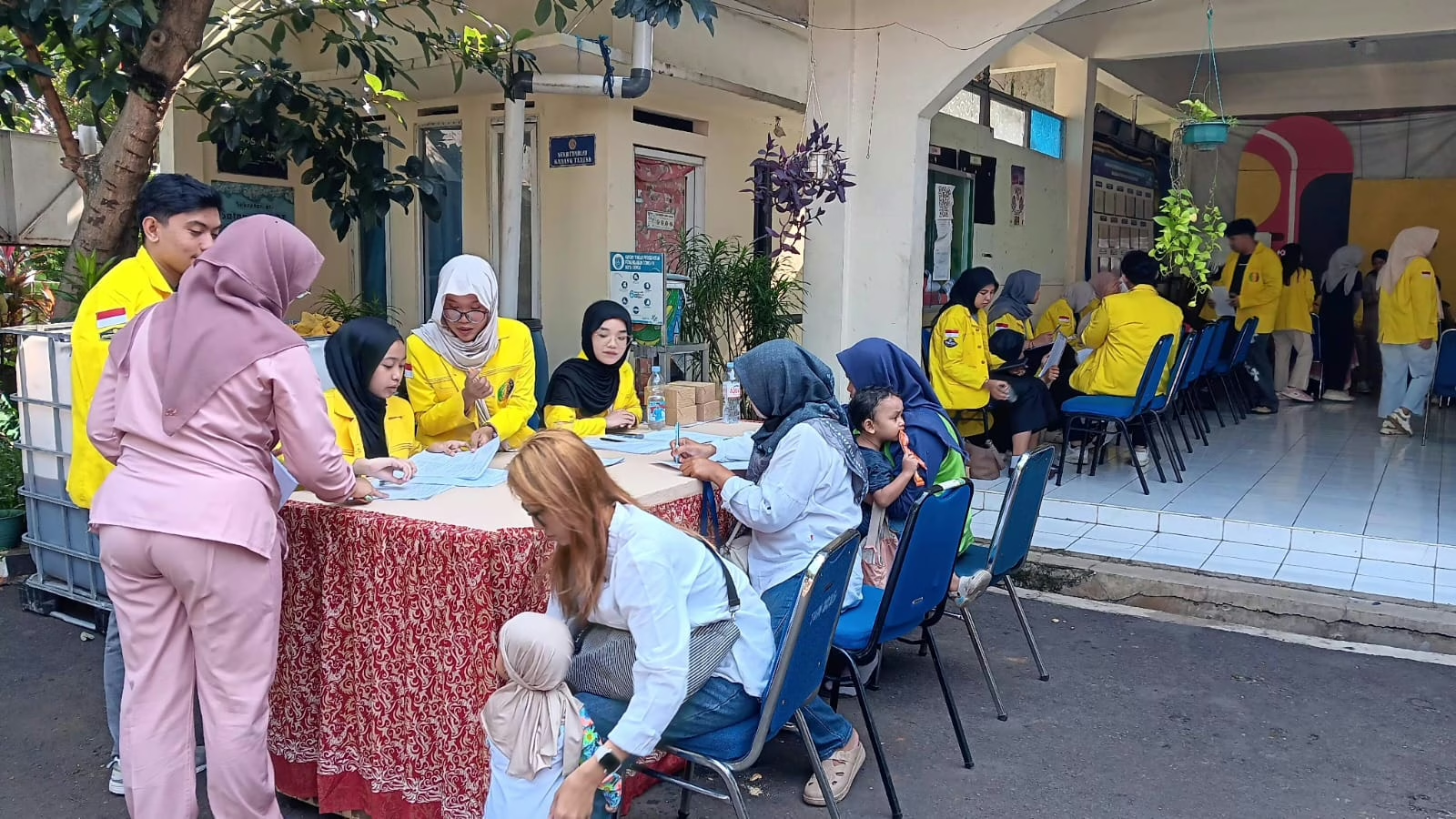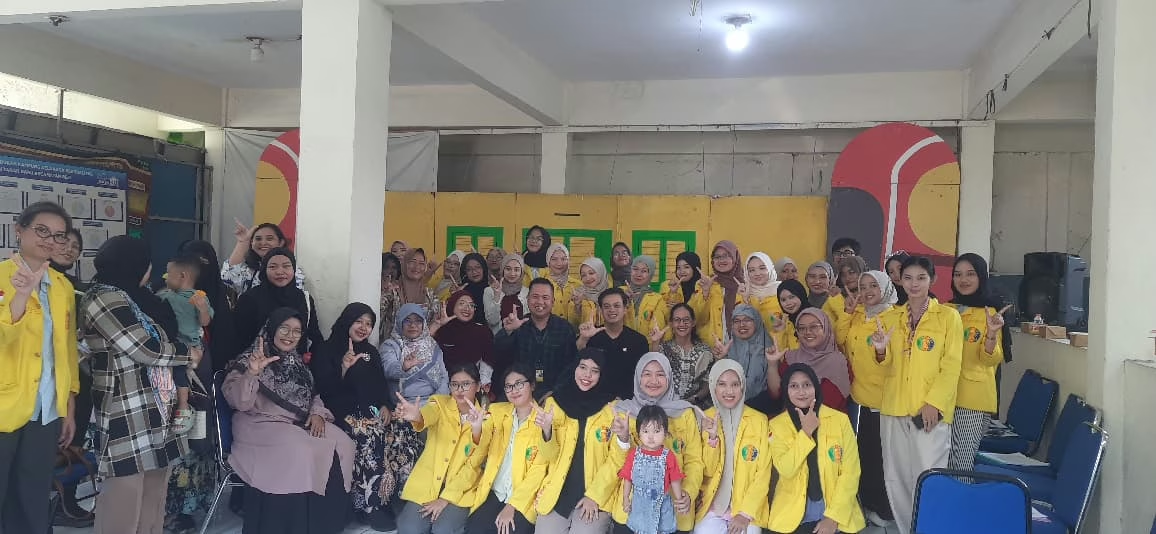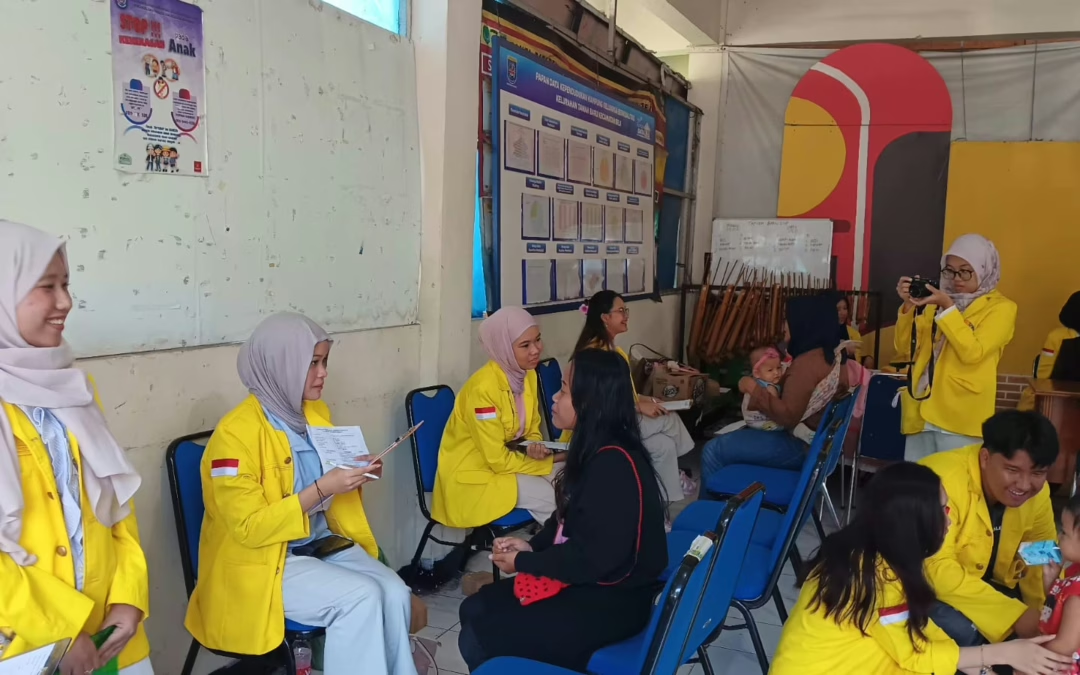Depok-The Universitas Indonesia (UI) Vocational Education Program has once again presented a concrete solution to a public health problem. Through a community service activity titled “Occupational Therapy Intervention to Address Stunting and Motor Delays,” a team of lecturers and students from the Occupational Therapy study program conducted a direct intervention in Tanah Baru Subdistrict, Depok, some time ago.
This program is a collaboration between academics and the Tanah Baru sub-district, focusing on improving the eating skills of stunted children with motor delays. This approach combines aspects of occupational therapy, nutrition, and community empowerment, a model of intervention rarely implemented in stunting reduction efforts in Indonesia.
 (Photo: Atmosphere of community service activities in Tanah Baru Subdistrict)
(Photo: Atmosphere of community service activities in Tanah Baru Subdistrict)
According to data from the Indonesian Ministry of Health in 2023, one in five children in Indonesia still suffers from stunting. In Tanah Baru Subdistrict, there were 108 toddlers recorded with stunting in 2024. Most of them also experience delayed motor development, which affects their ability to eat independently, potentially worsening their nutritional status.
“Children with stunting often have difficulty with postural control and fine motor coordination, which are necessary for self-feeding. If left untreated, this creates a negative cycle, where difficulty eating worsens nutritional status, which can slow motor development,” explained dr. Amien Suharti, Sp.K.F.R., Head of the Community Service Team.
This intervention program adopts an evidence-based approach with screening and individual intervention stages. The initial phase involved mass screening of children at risk for stunting and motor delays using the WHO Anthro to assess growth status and the Denver Developmental Screening Test (DDST) to assess motor development.
 (Photo: Group photo after the community service activity ended)
(Photo: Group photo after the community service activity ended)
In addition, the community service team also assessed the children’s eating behavior and sensory profiles to understand factors that influence their eating abilities. Based on the assessment results, each child received an individual intervention plan consisting of motor stimulation and independent eating training. The team also designed assistive devices, such as tables adapted to the child’s posture, for greater comfort and effectiveness during mealtimes.
Amien added, “Through occupational therapy, we not only help children develop fine and gross motor skills, but also empower parents to continue stimulation at home. The ultimate goal is for children to be able to eat independently and grow optimally.”
This activity also received full support from the Tanah Baru Subdistrict. Head of Tanah Baru Subdistrict, Dicku Macyudin, said, “We strongly support this program because it addresses the root of the stunting problem in our area. Until now, existing interventions have focused solely on nutritional intake, even though motor impairment is also a crucial factor that needs to be addressed.”
This program is expected to become a model for collaborative intervention that can be replicated in other regions as an innovative way to accelerate stunting reduction. In addition to its direct impact on the community, this activity also demonstrates the role of UI Vocational in supporting the Sustainable Development Goals (SDGs), particularly goals 2 (Zero Hunger) and 3 (Good Health and Well-Being).
“We are very proud of the initiative of UI Vocational lecturers and students who continue to provide applicable solutions for the community. This program reflects the spirit of UI Vocational, which is oriented towards real-world practice and has a direct impact. Through cross-sector collaborations like this, UI Vocational plays an active role in producing graduates who are not only competent but also have a social conscience,” said Padang Wicaksono, S.E., Ph.D, Director of UI Vocational Education Program.


